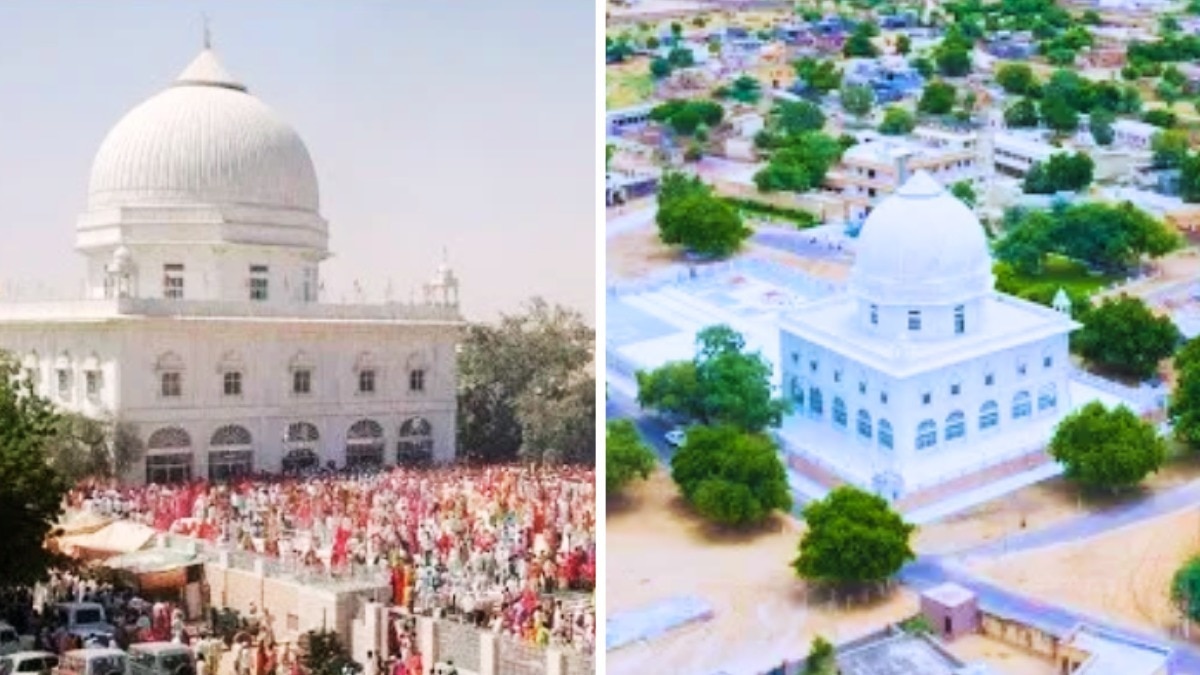The Election Commission of India has shifted the date of the upcoming Haryana Assembly elections from October 1st to October 5th, 2024. The decision to postpone the election was taken in consideration of the “Aasोज Amavasya” festival celebrated by the Bishnoi community. The festival falls on October 2nd this year, and the Election Commission received a memorandum from the All India Bishnoi Mahasabha Bikaner (Rajasthan) requesting a change in the poll date. The memo highlighted the significant migration of Bishnoi community members from Punjab, Rajasthan and Haryana to their ancestral villages in Rajasthan on the occasion of the Aasोज Amavasya festival, potentially affecting voter turnout.
What is Aasोज Amavasya?
Aasोज Amavasya, or the new moon day of the Aasोज month of the Hindu calendar, holds immense importance for the Bishnoi community. It is observed in remembrance of the founder of the Bishnoi faith, Guru Jambheshwar.
Significance of the Festival
Legend has it that Guru Jambheshwar attained ‘samadhi’, or eternal rest, in a village called ‘Mukaam’ in Bikaner, Rajasthan. This sacred site is now known as “Mukti Dham,” signifying a place of liberation. The Bishnoi belief holds that those who serve with selfless devotion at this sacred place attain ‘Moksha’, liberation from the cycle of birth and death.
The Festival’s Impact on Election Dates
The All India Bishnoi Mahasabha had appealed to the Election Commission to reschedule the Haryana Assembly elections due to the widespread participation of Bishnoi community members in the Aasोज Amavasya festival. Thousands of Bishnoi families, primarily residing in the Sirsa, Fatehabad, and Hisar districts of Haryana, travel to Rajasthan to celebrate the festival. The potential disruption of voter turnout and participation due to this travel was considered a significant factor by the Election Commission.
A Look at Aasोज Amavasya Festivities
Every year, the Mukti Dham in Bikaner is a vibrant hub of activity during two major events – the “Phalgun Amavasya” and the “Aasोज Amavasya” celebrations. The Phalgun Amavasya event has been observed for a long time, while the Aasोज Amavasya event was started in 1591 AD by Sant Vilhoji. This event brings together devotees from far-reaching regions in Haryana, Punjab, and Rajasthan. They visit Mukti Dham to pay their respects to Guru Jambheshwar.
The 2024 Aasोज Amavasya falls between 9:39 pm on October 1st and 12:18 am on October 3rd. Hence, the Aasोज Amavasya fair will be held on October 2nd. The Mukti Dham is located in the Mukaam village, approximately 63 kilometers from Bikaner city and 15 kilometers from the Noखा tehsil in Bikaner district.
Mukti Dham: A Place of Devotion and History
The Mukti Dham in Bikaner holds deep significance for the Bishnoi community. It is believed that Guru Jambheshwar attained ‘samadhi’ here on the Ekadashi (eleventh) day of the Hindu lunar fortnight. A memorial in the form of a ‘samadhi’ has been constructed at the place, where the Guru is believed to have been laid to rest. It is said that during the preparation of the site for the samadhi, a trident was discovered beneath the ground, which is still present at Mukti Dham.
This revered site was constructed by Randohir Ji Bawal, one of Guru Jambheshwar’s closest disciples. His demise later saw the completion of the temple through the combined efforts of several revered saints from the Bishnoi community.
Takeaway Points
The shift in the Haryana Assembly election date underscores the Election Commission’s commitment to facilitating free and fair elections while considering the cultural and religious sentiments of the populace. The importance of Aasोज Amavasya for the Bishnoi community, combined with the significant travel associated with it, necessitated the change in the election schedule. The festival, observed at the historic Mukti Dham in Bikaner, holds significant religious importance and draws a large gathering of Bishnoi devotees from across the region. The shifting of the election date highlights the Election Commission’s dedication to inclusivity and the recognition of cultural and religious sensitivities within the electoral process.




